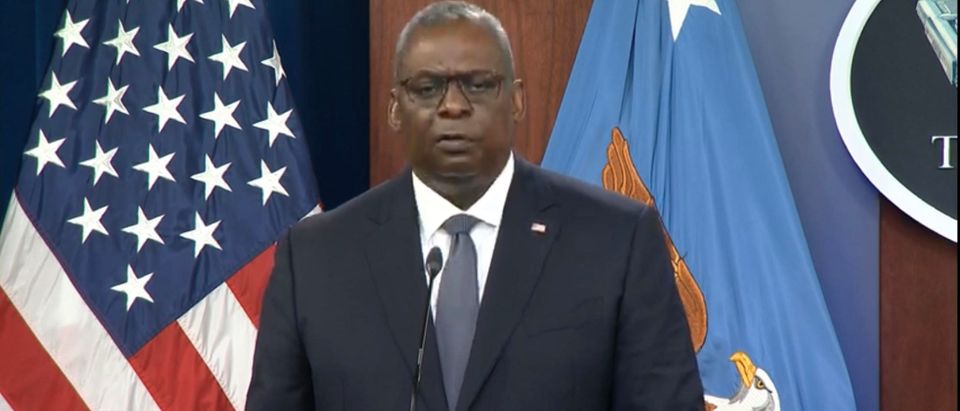Defense Secretary Lloyd Austin declared Wednesday that U.S. leadership must direct a “new focus” toward the China threat now that America has fully withdrawn forces from Afghanistan.
Austin and Joint Chiefs Chairman Gen. Mark Milley addressed the public on the end of the Afghanistan war at a Wednesday press briefing. Austin praised the weeks-long effort to evacuate through the Kabul airport, an effort which ultimately left more than 100 Americans stranded in the country along with tens of thousands of Afghan allies and refugees. Austin thanked Americans who gave their lives over the 20-year U.S. deployment in Afghanistan, but said the U.S. military must look toward new threats.
“As one mission ends, others must go on,” Austin said, adding that U.S. diplomats will be taking over efforts to ensure stability in Afghanistan. (RELATED: US Sanctions 24 Officials Over China’s Latest Crackdown On Hong Kong)
“It’s our duty to defend this nation, and we’re not gonna take our eye off the ball,” he continued. “It means a new focus to our leadership in this young century to meet the security challenges from China, to seize new opportunities in the Indo-Pacific and elsewhere, to deepen our ties with all allies and new partners, and to defend our democracy against all enemies.”
WATCH:
President Joe Biden’s foreign policy has focused heavily on countering China on the global stage. Biden has framed the struggle between the U.S. and China as one that will determine whether democracy or autocracy will lead the world into the future.
The most pressing military threat from China is a potential invasion of Taiwan, an island nation whose independence the U.S. has long supported with both funds and arms. Both China and the U.S. have increased military presence in the South China Sea and Indo-Pacific in recent years, and U.S. allies such as the U.K. have also contributed support.
The Biden administration has also sought to isolate China diplomatically by strengthening ties with its neighbors Japan, India and Australia. The first in-person meeting between Biden officials and Chinese Communist Party (CCP) officials occurred in March in Alaska, and revealed just how heightened tensions have become.
Biden has accused China of carrying out a genocide against Uyghur Muslims in Xinjiang, as well as destroying democracy in Hong Kong. The U.S. and its allies have also pressed for a deeper investigation into the Chinese origins of COVID-19 and whether the virus could have spread from a Wuhan lab. China has made a habit of accusing the U.S. of human rights abuses in turn.


